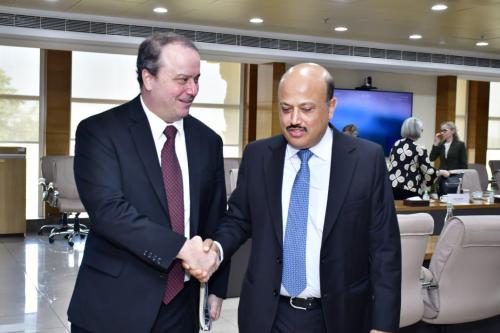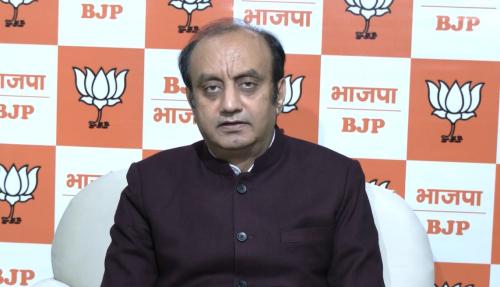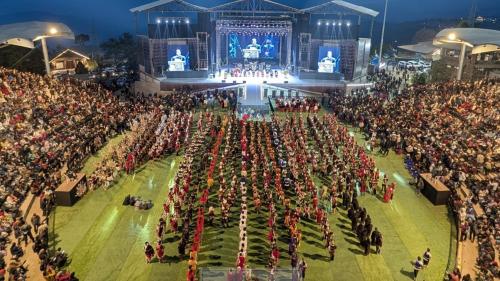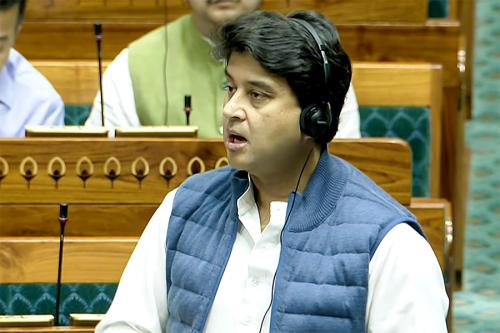New Delhi, March 22 (IANS) Kalinga Literary Festival's virtual platform KLF Bhava Samvad hosted writer, diplomat, academic and Mahatma's grandson Gopalkrishna Gandhi who joined in a conversation with poet and literary critic Arundhathi Subramaniam on the book 'Restless As Mercury: My Life As A Young Man Mohandas Karamchand Gandhi'. Beginning the session, Subramaniam gave a glimpse of the book, "The book is about a weave of texts provided by Mahatma Gandhi about his life. The weave is so seamless that you cannot divide it, you cannot find the sutures, the joiners. There is cohesiveness. "The fact that there is a quality of grainy unedited footage that to my mind is a very strong image and that's what makes the book work. The book didn't seem to be a photoshopped airbrushed commentary, there was a sense of watching something unfold upfront and close. "As one reads, the matter of facts, the unvarnished unadorned quality of writing is unpretentious. A sense of a man who sees himself as a verb, not as a noun." Talking about his quest for writing, Gopalkrishna said, "The reason for describing myself something other than a writer or being hesitant is that it is for somebody else that is to say the reader to describe the person being read like a writer. "For the writer herself or himself to say I'm a writer is like a person studying philosophy to say I'm a philosopher. There are some descriptions like Historian, Engineer, Architect which are perfectly fine when used by the genuine article. "'The writer' is a huge compliment and a huge responsibility." He further talked about the idea behind editing the book. He said, "In Sri Lanka, I met this extraordinary community of plantation workers mostly of Tamil origin, who were working in tea plantation of the country and many of them being repatriated to India. "I used to meet a dozen of them every day. The story of what they'd want to do in India was fascinating. Each one of them was a tragic character for they were leaving the country where they were born. "The idea was put to me that Gandhi's observation and his life outside the official autobiography could perhaps be put together. "A whole lot of conversations around him about family lore and we're scattered in the niches of the writing that came to me. I was struck by the things which in the normal storyline they don't quite occur. "When this conversation took place I was particularly reminded of the Hindi verse used by Gandhi: 'Khabar nehi jab agle pal ki, samajh mana anjan kalki'," said Gandhi. Further, he added, "Hagiography is about saints and sages. Gandhi had a DNA reverence for sages and saints from his childhood. He had a sense of saintliness in a person. But he was horrified when people regarded him as a saint because he knew himself all too well. "Saint who has walked out of Grihastha is in the right setting, ivory miniature in a silver view. In Gandhi's case, he was a householder from Day 1 to the last day of his life. "He wanted to be a person whom ascetics would recognise as a fellow traveller. "The last full sentence he uttered was in Gujarati translated into English was: 'I hate being late'. It was self-chastisement. A mystic poet from Italy converted it into (he looks at the assassin and says) 'oh, you are late'. This is a poetic imagination." "It was not about editing a contemporary writer who would not mind being edited by the compiler, somebody who's not there now. In your case, every word, syllable, space between words has been measured in Goldsmith's weighing scale. "Dust of diamond is weighed by you in your writing poetry and Gandhi was like that," he concluded.
Gandhi had DNA reverence for sages-saints from childhood: Grandson at KLF
- by Rinku
- March 22, 2021 2 minutes

Kalinga Literary Festival










